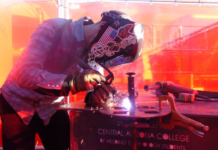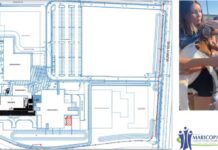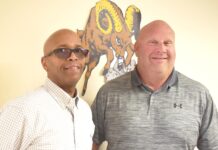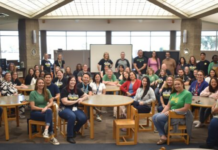By Bernadette Russoniello
‘Where are you going to college?” “What’s your major?” “Where do you want to go to school?” Unfortunately, these questions are far too common for the average teen. We place incredible pressure on students to pick their college of choice; we even measure or judge students by their college ambitions.
The focus of meaningful college and career-ready conversations needs to shift to career. What career do you want? What major will help you attain your career plans? Where do you want to work?
The entire purpose of post-secondary education is to attain specific skills, knowledge and experiences to better prepare us for a career. At the secondary level, we tend to put too much emphasis on the two to eight years of college we prepare students for, rather than the 40 to 50 years that will span their working life.
We need to shift the conversation from college and career to college FOR career.
Why the push for college? Estimates from the Bureau of Labor Statistics indicate the average earnings for those with college degrees or certified credentials almost double that of a high school graduate. The same statistics show unemployment rates decrease by the same margins.
What is college? When I speak with students, I explain that college is any form of post-secondary education or training that prepares them for a career. College can take many forms apart from the four-year university, including trade schools, certification or licensure, community college, apprenticeships or the military. I challenge students to first consider what they want from life – what do they value? Is it money? Family? Lifestyle? Purpose? What do they consider a “good income”? Once these questions are prioritized, we can dive into possible directions and pathways for their consideration.
When students consider career options, they need to consider how potential careers match their income needs and how the job fits their lifestyle needs and desires.
There are many resources available online to help provide students guidance and direction in career aspirations. A good starting point is the Myers-Briggs-type indicator. Most universities have some form of an interest profiler and major match available on their websites.
Arizona State offers the Me3 assessment, an online picture-based inventory while University of Arizona offers Degree Search, a clickable interactive checklist of criteria to help match students with their best possible field.
Remember, a goal without a plan is just a wish. Research and set your career goals, determine what school or program will best fit those plans, and start building relevant skills and experiences to achieve your dreams.
Bernadette Russoniello is the Career and College coordinator at Maricopa High School. She can be reached at [email protected].
This column appears in the August issue of InMaricopa.

















![Shred-A-Thon to take place tomorrow An image of shredded paper. [Pixabay]](https://www.inmaricopa.com/wp-content/uploads/2024/03/shredded-paper-168650_1280-100x70.jpg)
